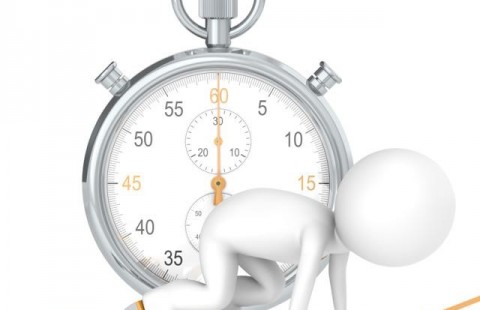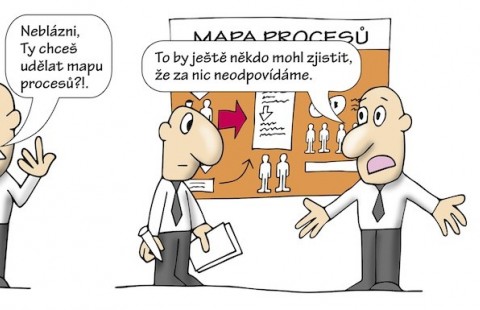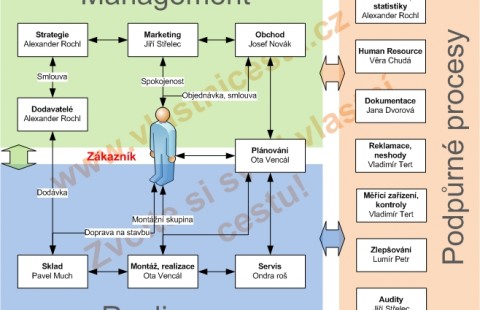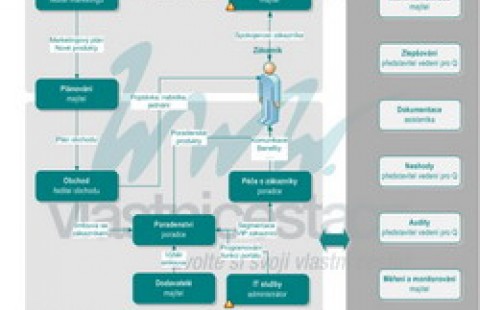Providing workers with the feedback makes the bread and butter of the manager´s work. It primarily includes giving praise, directing and criticizing people. Sadly, in practice, the managers do see the feedback having no effect at all, as it were. They criticize a worker only to see him or her shrug a little and carry on working as they did until then. The thing is, mostly, there is a number of fundamental mistakes that the managers tend to make. Subsequently, when the workers leave, it is frequently attributed to the phenomenon of personnel turnover rather than to the inappropriate feedback.
Environment where praise and criticism work
Feedback is not just about communication like saying to someone “… well, that was job well done” or “ … you have not kept the conditions of the project …” and so on. In fact, it begins much earlier. The manager needs to have set the team environment right and - in particular - just. The following items have to be considered as a minimum:
- performance - what results the company needs to deliver to ensure its good future and the future of its teams and workers. Paradoxically, it is the performance that provides motivation to the workers.
- capacity - the work is supposed to be set in such a way that the worker will reach the performance the company needs during their working hours with the occassional fluctuations up (overtime) or down (time off work). Life is full of change and does not follow any constant pre-calculated pattern, humans are not capable of working in a robot-like fashion with the steady 100% performance.
- skills - qualification, expertise and the character features that the workers have enable them to achieve the desired performance at a given capacity.
- remuneration - salary, its variable components, bonuses, rewards are all set so as to have the worker do quality work. If they are paid the same salary regardless of whether they make mistakes or come up with brilliant improvements, it will not be just.
- needs - giving praise or criticism belongs to the 4th level of the Maslow pyramid. It, nonetheless, states clearly that if the worker´s lower level needs have not been saturated, their higher-level needs will not work too (in the long term). In other words, if the worker is paid low salary, just making the ends meet, they will not be much interested in praise and so on.
If the aforesaid categories are set correctly, the worker will know that they are able to achieve that performance through their work and for that performance they will be paid a fair salary. They will also know their needs are taken care of and will easily provide for their families. Everything is, then, under their control. The result and the praise are entirely up to their skills and efforts. It is exactly at this point, not earlier, that the feedback thing begins.
These categories define the space, the playing field where the worker should be moving and be led to success. The success needed both by the company and themselves.
The purpose of feedback
The main purpose of feedback is to communicate to the worker that he or she either works correctly - is moving within the defined area - or they have made a mistake and left that defined playing field. Our objective while giving praise is to enhance his or her motivation to give great performance and achieve results that they are going to be proud of themselves.
In criticizing, it is our objective to get them back to the playing field and show them they are well capable of doing the job well by themselves and winning a praise for that. It all sound like a nice theory, and it will remain one too, unless the rules or giving praise and criticizing are obeyed and used correctly.

The Real | Interim Manager for Your Changes

Manager work model

Time management - making use of time effectively

Jak správně tvořit mapu procesů

Modelling and setting the processes and procedures - ISO 9001

Training - preparation of the SWOT analysis and strategy

Company Management System of Quality Step by Step - ISO 9001

Process map acc ISO 9001 - business offer

IT staff communication
The mistakes we make most frequently while praising and criticizing
The joy of being praised is overshadowed by another task assignment - the day-to-day operation and lots of other work that the practice holds in store for the workers and the managers alike leads to making this fundamental mistake. “Franky, you have made a great job of the customer presentation. You have managed to capture the imagination of everybody beautifully, you have really drawn them into the problem …… so preparing a presentation for the management is going to be a piece of cake for you …” You have just given Franky another assignment just because he managed to fulfil the previous one brilliantly. Will Franky want to be praised next time he is on a job? Find the answer for yourselves.
By criticizing I also give them extended deadline to fulfil the task in - the worker has not fulfilled the task in the deadline. You will proceed to criticize them and explain them that deadlines are here to be met. You will specify what damage it has done to the company and the customer and, quite correctly, assign them a task to do. A task that would get that worker back on the track to the right playing field as mentioned above. However, the task says “…if you have not met the original deadline, you shall complete the job by 3.00 PM tomorrow ...”. The task is designed to help the worker get back in time and understand the result of the work is in their hands. In getting the new deadline to finish the work the worker has traded a minute of "bullshit" for a new extended deadline date. Well, is it not an agreeable deal?
The relic old rule - it has been surviving in the managers´ minds: give praise publicly and criticize privately. Sadly, when following this old rule you can easily bring about a catastrophy even with a praise. In good faith, you give praise to a worker with low self-confidence before the team when the team have actually made a grave mistake while working on a job. Not only you will make that worker feel awkward, he or she can become the victim of the team exclusion and so on.
The article with the list of mistakes could be much longer as the theme of how to provide the right feedback is really extensive. If you are genuinely interested in learing how to praise and criticize correctly, feel free to use our knowledge line HOW TO PRAISE AND CRITICIZE WORKERS CORRECTLY. While studying the subject, you are not going to be alone. The authors of the line will supervise your study advancement and advise you personally on any specific queries you might have. There are lots of exceptions and pitfalls you might fall into while giving praise or criticizing, many of them related to the team. If you are the customer of any adviser of the OwnWay portal, ask the author for your own personalized price quotation.
Please, share your experience with praising and criticizing in the discussion box.

